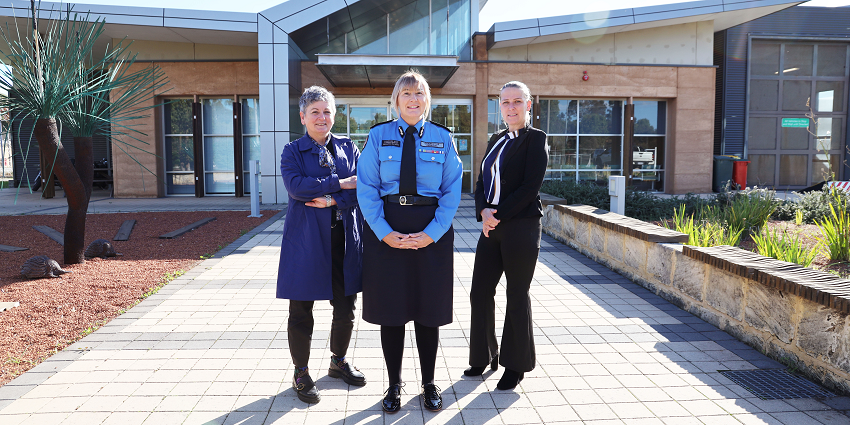
Pictured: Commissioner for Victims of Crime Kati Kraszlan, Bandyup Women’s Prison Superintendent Andrea Bowen and Gosnells Community Legal Centre Chief Executive Sarah Patterson
Under the Leave Safe, Stay Safe program, service providers will offer support to women nearing the end of their sentences who have identified as FDV victim-survivors.
The women will be given one-on-one social support and legal and communications advice before and after release to help protect them and their families.
The three-year, $2 million trial is taking place at Bandyup Women’s Prison and Greenough Regional Prison.
About 100 women per year are expected to participate in the voluntary program, which is being managed by the Office of the Commissioner for Victims of Crime.
“Between 70 and 90 per cent of women in custody are victims of family and domestic violence,” Commissioner for Victims of Crime Kati Kraszlan said.
“We want to help these women stay safe after they’re released,” Ms Kraszlan said. “That will also protect the community by reducing the likelihood they’ll reoffend and end up back in prison.”
Gosnells Community Legal Centre and Regional Alliance West will provide the women legal support, including help with the Family Court, child custody arrangements and applying for family violence restraining orders.
Relationships Australia will be offering the women counselling, risk assessment and safety planning.
The women engaged in the pilot will also learn about online safety from women’s services network WESNET and upon release receive a ‘clean’ smartphone preloaded with important information and contacts.
“This is the first time the phones have been given to women getting out of prison,” Ms Kraszlan said. “Research has shown this service has had a real impact on the lives of women and their children by providing a phone that’s not compromised.”
The project will be evaluated from early 2025 and may be expanded to other prisons.


